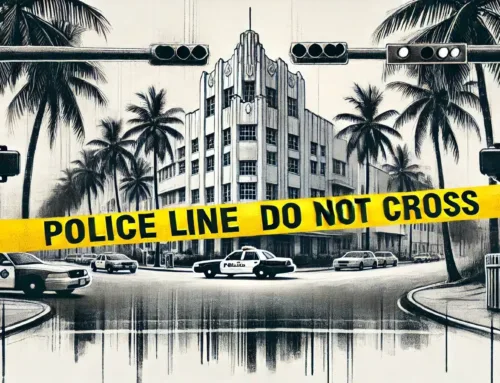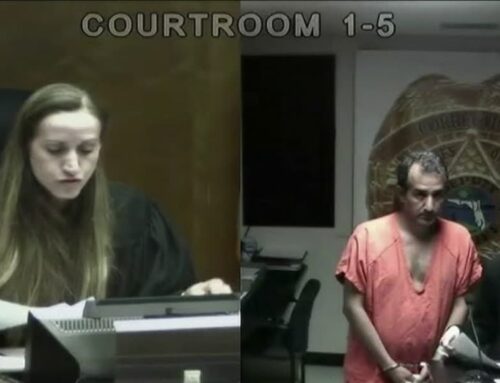Myths About the Criminal Justice System
Unveiling the Truth Behind Common Myths and Misconceptions
The criminal justice system is a complex and intricate web of laws, procedures, and institutions. Misconceptions about the system can lead to confusion, fear, and even injustice. In this blog post, we will address some of the biggest myths and misconceptions surrounding the criminal justice system and provide clarity to help you better understand your rights and the legal process.
Myth #1: If You’re Innocent, You Have Nothing to Fear
One of the most prevalent misconceptions is that innocent people have nothing to worry about when facing criminal charges. Unfortunately, the belief that the truth will always prevail is not always the case. In reality, innocent people can and do get convicted for crimes they did not commit. This can be due to various factors, such as false confessions, eyewitness misidentification, inadequate legal representation, and prosecutorial misconduct. Individuals have sometimes been wrongfully executed for crimes they did not commit.
According to the National Registry of Exonerations, there have been over 2,800 exonerations since 1989, with many of these individuals spending years, if not decades, behind bars before being released. A skilled criminal defense attorney can help protect your rights and work diligently to uncover the truth, even in the face of a flawed system. A knowledgeable attorney can help identify weaknesses in the prosecution’s case, gather exculpatory evidence, and advocate for your rights throughout the process. Remember, the burden of proof is on the prosecution, and a strong defense can be the difference between a conviction and an acquittal.
Myth #2: All Criminal Cases Go to Trial
Television shows and movies often fuel the belief that every criminal case leads to a dramatic courtroom trial. Most cases are resolved through plea bargains or other negotiated settlements. This is primarily due to the overwhelming caseloads faced by courts and the desire to reach resolutions more quickly. The Bureau of Justice Statistics estimates that approximately 90-95% of criminal cases are settled through plea agreements.
Plea bargains can benefit defendants, who may receive reduced charges or lighter sentences in exchange for accepting responsibility for their actions. However, accepting a plea bargain should never be taken lightly. It is essential to have a seasoned criminal defense attorney who can evaluate the strengths and weaknesses of your case, negotiate with the prosecution, and help you make an informed decision about whether a plea deal is in your best interest.
Myth #3: Public Defenders Are Less Competent Than Private Attorneys
Public defenders are often unfairly criticized as less competent than their private counterparts. It is important to recognize that many public defenders are highly skilled, knowledgeable, and dedicated to ensuring that everyone has access to justice, regardless of their financial situation.
That being said, public defenders often face challenges that can impact their ability to provide the best possible defense for their clients. They may have excessive caseloads, limited resources, and insufficient support staff, making it difficult to devote time and attention to each case. By contrast, private criminal defense attorneys typically have more resources at their disposal, allowing them to focus more intently on your case and explore every possible avenue for your defense.
Myth #4: Your Attorney Is in Constant Communication with the Prosecutor Regarding Your Case
It’s a common misconception that your criminal defense attorney constantly communicates with the prosecutor regarding your case. While there may be communication between the defense attorney and the prosecutor, the extent and frequency of their interactions depend on various factors, including the complexity of the case, the stage of the legal process, and the strategy employed by the defense. However, constant communication between the two parties is not the norm. There may be periods of little or no communication, particularly during the investigation stage or when the defense attorney is working on building a strong case for their client. Moreover, maintaining a professional distance can be crucial to protect the interests of the defendant and preserve the adversarial nature of the criminal justice system.
In some instances, the defense attorney may strategically limit communication with the prosecution to protect their client’s rights and avoid inadvertently disclosing sensitive information or weakening their position.
Myth #5: When Stopped by Police, You Have to Answer All of the Police Officer’s Questions
A widespread misconception is that if the police stop you, you must answer all their questions. In reality, you have the right to remain silent and not incriminate yourself, as protected by the Fifth Amendment to the United States Constitution.
When stopped by the police, you are generally required to provide basic identifying information, such as your name, address, and date of birth. In some states, you may also be required to show identification, such as a driver’s license, if you are operating a motor vehicle. Beyond this basic information, you have the right to remain silent and decline to answer any further questions without the presence of an attorney.
It’s essential to understand that you should exercise your right to remain silent respectfully and calmly. If you choose not to answer a police officer’s questions, clearly and politely assert your right to remain silent. You can say something like, “I am exercising my right to remain silent, and I would like to speak with an attorney.”
If the police officer continues questioning you after you have asserted your right to remain silent, you should not feel compelled to answer. However, it’s crucial to remain polite and cooperative in other aspects of the encounter, such as providing your identification when requested.
Myth #6: Police Must Read Your Miranda Rights During an Arrest
The misconception that the police must read your Miranda rights during an arrest likely stems from the prevalence of this scenario in popular culture. However, the legal requirement is more nuanced than that. The Miranda warning, which informs you of your right to remain silent and your right to an attorney, is only required when you are both in custody and subjected to interrogation.
If the police fail to read your Miranda rights when required, it may lead to the suppression of any statements you made during the interrogation. However, other evidence gathered during the investigation can still be used against you in court. An experienced criminal defense lawyer can help you understand how the failure to administer the Miranda warning may impact your case and develop a strategy for addressing this issue in court.
Myth #7: You Have a Right to One and Only One Phone Call
This popular misconception, often perpetuated by TV shows and movies, suggests that once you’re arrested, you have the right to make a single phone call. In reality, the legal requirements surrounding communication for arrestees are more complex and vary depending on the jurisdiction.
In Florida, for instance, the Florida Statutes (Title XLVII Chapter 901.24) state that arrestees have the right to communicate with their attorneys, family, or friends, and law enforcement officers must provide reasonable means to do so. This typically means that you will be allowed to make a reasonable number of phone calls within a reasonable time after being arrested. The law does not limit you to just one call.
It is crucial to use your phone call(s) wisely. Contacting a family member, friend, or attorney who can help you secure legal representation or assist with posting bail can be invaluable. Remember that anything you say on the phone in a police station or detention facility may be recorded or monitored, so avoid discussing details of your case.
Myth #8: The Prosecution Has a Strong Case if You’re Charged
Many people assume that the prosecution must have a strong case against them if they’ve been charged with a crime. However, this is not always true. Sometimes, charges are based on insufficient or circumstantial evidence, which may not hold up in court. An experienced criminal defense attorney can scrutinize the prosecution’s evidence, identify weaknesses, and potentially have charges reduced or dismissed.
Myth #9: Juveniles Cannot Be Tried as Adults
While the juvenile justice system is designed to address the unique needs of minors, there are circumstances in which a child in a juvenile case can be tried as an adult. In Florida, for example, under certain conditions, such as the severity of the crime and the juvenile’s age, the state may choose to prosecute a juvenile as an adult. This can have serious consequences, including more severe sentences and a permanent criminal record.
Myth #10: Eyewitness Testimony is Always Reliable
Eyewitness testimony has long been considered a powerful form of evidence in criminal cases. However, research has shown that it can be surprisingly unreliable. Factors such as stress, lighting conditions, and the natural fallibility of human memory can lead to misidentifications or inaccurate accounts of events. A knowledgeable criminal defense attorney will understand the potential pitfalls of eyewitness testimony and may be able to challenge its credibility in court.
Myth #11: The Appeals Process Guarantees a New Trial
Many people mistakenly believe that appealing a conviction guarantees a new trial. In reality, the appeals process is focused on reviewing the legal aspects of the original trial for errors that may have affected the outcome. A successful appeal may result in a new trial, a reduced sentence, or even an overturned conviction, but there is no guarantee. Moreover, the appeals process can be lengthy and complex, requiring the expertise of an attorney well-versed in appellate law.
Myth #12: A “Not Guilty” Verdict Means the Defendant is Innocent
A “not guilty” verdict does not necessarily mean the defendant is innocent. Rather, it signifies that the prosecution failed to prove its case beyond a reasonable doubt. A defendant may be factually innocent but found guilty, or they may be factually guilty but found not guilty due to insufficient evidence or other legal factors.
Myth #13: An Arrest Warrant is Always Required for an Arrest
Many people believe that the police always need an arrest warrant to arrest someone. However, there are several circumstances in which an officer can make an arrest without a warrant. For example, if an officer witnesses a crime being committed or has probable cause to believe a person has committed a felony, they can make an arrest without obtaining a warrant first.
Myth #14: A “Hung Jury” Favors the Defense
A hung jury occurs when the jurors cannot unanimously decide about the defendant’s guilt or innocence. While a hung jury may temporarily benefit the defense by preventing a guilty verdict, it does not mean the case is over. The prosecution may choose to retry the case, and the outcome could still result in a conviction.
Myth #15: Police Must Always Wear Uniforms and Identify Themselves as Officers
It is a common belief that police officers must always wear uniforms and identify themselves when conducting an arrest or search. In reality, there are situations in which plainclothes officers or undercover agents can carry out their duties without disclosing their identity, such as during covert operations or when investigating certain types of crimes.
Myth #16: A Crime Must Have a Victim
While many crimes involve a clear victim, such as theft or assault, there are also “victimless” crimes, where the illegal act does not directly harm another individual. Examples include drug possession, gambling, and prostitution. These crimes are still subject to prosecution and penalties, even though they may not have an identifiable victim.
Myth #17: Ignorance of the Law is a Valid Defense
Many people believe that if they didn’t know an action was illegal, they could not be held responsible for the crime. Unfortunately, ignorance of the law is generally not a valid defense. The legal principle “ignorantia juris non excusat” (ignorance of the law excuses not) holds that individuals are responsible for knowing the law and can be held accountable for their actions, even if they were unaware of the specific laws violated.
Myth #18: Police Must Obtain a Search Warrant for Every Search
While it’s true that the Fourth Amendment protects against unreasonable searches and seizures, there are circumstances in which police can conduct a search without a search warrant. These situations include consent searches (when a person voluntarily agrees to the search), searches incident to a lawful arrest, vehicle searches with probable cause, and searches in exigent circumstances (such as when evidence might be destroyed or a suspect might escape).
Myth #19: A Conviction Always Results in Jail or Prison Time
Many people assume that a criminal conviction always leads to incarceration. In reality, the penalties for a crime can vary widely and may include alternatives to jail or prison time, such as probation, community service, fines, or mandatory counseling. Factors like the severity of the crime, the defendant’s criminal history, and the case’s circumstances can influence the court’s sentence.
Myth #20: Double Jeopardy Protects Against All Retrials
The Double Jeopardy Clause of the Fifth Amendment protects individuals from being tried twice for the same crime. However, there are exceptions to this rule. For example, the prosecution may retry the case if a trial ends in a mistrial or a hung jury. Additionally, a successful appeal could lead to a new trial, as the appellate court may find that legal errors tainted the original trial.
Myth #21: The Criminal Justice System is the Same in Every State
While the U.S. Constitution provides a framework for the criminal justice system, each state has its own criminal laws and procedures. This means that the process and penalties for similar crimes can vary significantly from one state to another. It is essential to have a criminal defense attorney who is well-versed in the specific laws and procedures of the jurisdiction in which you are facing charges.
Myth #22: A Lie Detector Test Can Prove Your Innocence
Polygraph tests, commonly known as lie detector tests, measure physiological responses such as heart rate, blood pressure, and perspiration to determine if someone is truthful. However, the results of these tests are not infallible, and their accuracy has been widely debated. As a result, polygraph test results are generally not admissible as evidence in court. Passing a lie detector test does not automatically prove your innocence or guarantee an acquittal.
Myth #23: The Criminal Justice System is Solely Punitive
Many people view the criminal justice system as focused on punishment rather than rehabilitation. While punishment is undoubtedly significant, the system aims to rehabilitate offenders and prevent recidivism through drug treatment, counseling, and job training. The focus on rehabilitation can vary from jurisdiction to jurisdiction and may depend on the nature of the crime and the individual’s criminal history.
Myth #24: Misdemeanor Charges Are Not Serious
Some individuals may believe that misdemeanor charges are not serious and do not warrant the need for a criminal defense attorney. While misdemeanors generally carry less severe penalties than felonies, they can still result in jail time, fines, probation, and a criminal record. A criminal record, even for a misdemeanor, can have lasting consequences on employment, housing, and other aspects of life. A criminal defense attorney can help minimize the impact of misdemeanor charges and work towards the best possible outcome.
Myth #25: Your Criminal Record is Automatically Expunged After a Certain Period
Many people mistakenly think that their criminal record will be automatically expunged or sealed after a certain period has passed. However, this is not typically the case. Expungement and sealing of criminal records are not automatic processes and usually require the individual to petition the court for relief. Eligibility for expungement or sealing may depend on factors such as the type of crime, the outcome of the case, and the amount of time that has passed since the conviction or arrest.
Myth #26: A Single Piece of Evidence Can Guarantee a Conviction or Acquittal
Movies and TV shows often portray a single, dramatic piece of evidence that leads to a conviction or acquittal. In reality, criminal cases are usually decided based on the totality of the evidence, including witness testimony, physical evidence, and expert opinions. A single piece of evidence rarely guarantees a particular outcome, and the strength of a case often depends on how the various pieces of evidence fit together.
Myth #27: A Signed Confession Guarantees a Conviction
Some believe a conviction is guaranteed if a defendant signs a confession. However, confessions can be challenged in court, particularly if there is evidence that the confession was coerced, obtained under duress, or given without proper knowledge of the defendant’s rights. An experienced criminal defense attorney can evaluate the circumstances surrounding a confession and, if necessary, attempt to have it excluded from evidence.
Myth #28: Prosecutors and Defense Attorneys Are Enemies
Television and movies often portray prosecutors and defense attorneys as adversaries with personal animosity toward one another. In reality, most legal professionals understand that they are fulfilling their respective roles within the criminal justice system and often maintain professional, respectful relationships with each other. Their primary goal is to ensure that justice is served, which can involve cooperation and negotiation between both sides.
Myth #29: Hearsay Evidence Is Never Admissible in Court
Hearsay is an out-of-court statement offered as evidence to prove the truth of the matter asserted. While hearsay is generally inadmissible due to concerns about reliability, numerous exceptions and exemptions to the hearsay rule may allow such evidence to be admitted in court. Examples of exceptions include statements made for medical treatment, excited utterances, and statements against the declarant’s interest.
Myth #30: Entering a “No Contest” Plea Means You’re Admitting Guilt
A “no contest” plea, or “nolo contendere,” is often misunderstood as an admission of guilt. In reality, it means that the defendant is not admitting guilt but is also not disputing the charges. While a “no contest” plea can have similar consequences to a guilty plea in criminal court, it may protect the defendant from certain liabilities in civil court, as it cannot be used as an admission of guilt in a related civil lawsuit.
Myth #31: Entrapment Occurs Whenever Police Use Deception
Entrapment is a defense that argues the defendant was induced to commit a crime they would not have otherwise committed due to the actions of law enforcement. Many people mistakenly believe that any use of deception by police constitutes entrapment. However, entrapment requires more than mere deception; it involves improper inducement by law enforcement, such as coercion or exploiting a person’s vulnerability. Legitimate undercover operations or sting operations do not generally constitute entrapment.
Myth #32: The Jury Must Be Unanimously in Favor of Conviction
While many jurisdictions in the United States require a unanimous jury verdict to convict a defendant, some states allow for non-unanimous verdicts in certain cases, typically for less serious offenses. Understanding the specific requirements for a conviction in the jurisdiction where the trial is being held is important.
Myth #33: A Person Can Never Be Compelled to Testify Against Their Spouse
Many believe a person can never be compelled to testify against their spouse in a criminal trial. This misconception likely stems from the concept of “spousal privilege” or “marital privilege,” which consists of two distinct legal protections: the spousal testimonial privilege and the marital communications privilege. However, these privileges are not absolute, and there are situations in which a person may be required to testify against their spouse.
Myth #34: Juvenile Records Are Automatically Sealed or Expunged
Some people believe that juvenile records are automatically sealed or expunged once a person reaches the age of majority. However, this is not always the case. The process for sealing or expunging a juvenile record varies by jurisdiction, and in some cases, it may require a petition to the court. Furthermore, some serious offenses committed by juveniles may not be eligible for sealing or expungement.
Myth #35: A Pardon Erases a Criminal Conviction
A pardon is an act of clemency granted by a governor or the President, which forgives an individual for a crime and releases them from any further punishment. However, a pardon does not automatically erase or expunge a criminal conviction. While a pardon can restore certain rights, such as the right to vote or hold public office, the conviction may remain on the individual’s record unless they seek expungement or record sealing.
Myth #36: Victims of Crimes Pressing Charges
A common misconception is that victims of crimes are the ones who decide whether or not to press charges against the alleged offender. In reality, the decision to press charges lies with the prosecuting attorney, who represents the government and the interests of society as a whole, rather than the individual victim.
Myth #37: Guilty Pleas are Proof of Guilt
Many believe that if a defendant pleads guilty, it is undeniable proof of their guilt. While a guilty plea does involve admitting to the crime, there are various reasons why a defendant might choose to plead guilty, even if they maintain their innocence or believe they have a valid defense.
Myth #38: You Can Escape Punishment by Pleading Insanity
Another common misconception about the criminal justice system is that defendants can easily escape punishment by pleading insanity. In reality, the insanity defense is a complex legal strategy used infrequently and is successful in only a small percentage of cases. Even when it is successful, the defendant will likely be committed to a mental institution for many years.
Myth # 39: You Don’t Need an Attorney for Minor Offenses
A widespread misconception is that you don’t need to hire an attorney for minor offenses, as they are not as serious as major crimes and carry lesser penalties. However, even minor offenses can have lasting consequences, and seeking legal representation is crucial to protect your rights and ensure the best possible outcome.
While it’s true that minor offenses, such as traffic violations or petty theft, generally carry less severe penalties than felonies, they can still result in fines, probation, community service, or even jail time. Additionally, having a criminal record—even for a minor offense—can impact future employment opportunities, housing applications, professional licenses, and immigration status.
Myth #40: Prosecutors Only Pursue Cases They Believe They Can Win
While it’s true that prosecutors often consider the strength of the evidence and the likelihood of a conviction when deciding whether to pursue a case, other factors can influence their decision. Prosecutors may be motivated by the public interest, the need to hold individuals accountable for criminal behavior, or the desire to protect victims’ rights. In some cases, prosecutors may pursue charges even if they know the case will be challenging to prove in court.
Myth #41: If You Ask an Undercover Police Officer, They Have to Tell You They Are Law Enforcement or it is Entrapment
A widespread misconception is that if you ask an undercover police officer whether they are law enforcement, they must disclose their identity or risk any subsequent arrest being considered entrapment. In reality, this belief is entirely false. Undercover police officers are not required to reveal their true identity, even when asked directly.
Myth #42: Prosecutorial Misconduct Rarely Occurs
While most prosecutors are dedicated professionals who adhere to ethical standards, prosecutorial misconduct can and does occur. Examples of misconduct include withholding exculpatory evidence, making improper statements during a trial, or using unreliable or coerced witness testimony. When prosecutorial misconduct is identified, it can lead to overturning a conviction or other remedies to ensure a fair trial.
Contact an Experienced Criminal Lawyer
A solid understanding of the criminal justice system involves understanding these common misconceptions and helping clients make informed decisions about their cases. If you or a loved one is facing criminal charges, do not hesitate to reach out for experienced and knowledgeable legal representation.
CALL US NOW for a CONFIDENTIAL INITIAL CONSULTATION at (305) 538-4545, or take a moment to fill out our confidential and secure intake form.* The additional details you provide will greatly assist us in responding to your inquiry.
*Due to the large number of people who contact our law office requesting our assistance, it is strongly suggested that you take the time to provide us with specific details regarding your case by filling out our confidential and secure intake form. The additional details you provide will greatly assist us in responding to your inquiry promptly and appropriately.
THERE ARE THOUSANDS OF LAW FIRMS AND ATTORNEYS IN SOUTH FLORIDA. ALWAYS INVESTIGATE A LAWYER’S QUALIFICATIONS AND EXPERIENCE BEFORE MAKING A DECISION ON HIRING AN ATTORNEY FOR YOUR MIAMI-DADE COUNTY CASE








